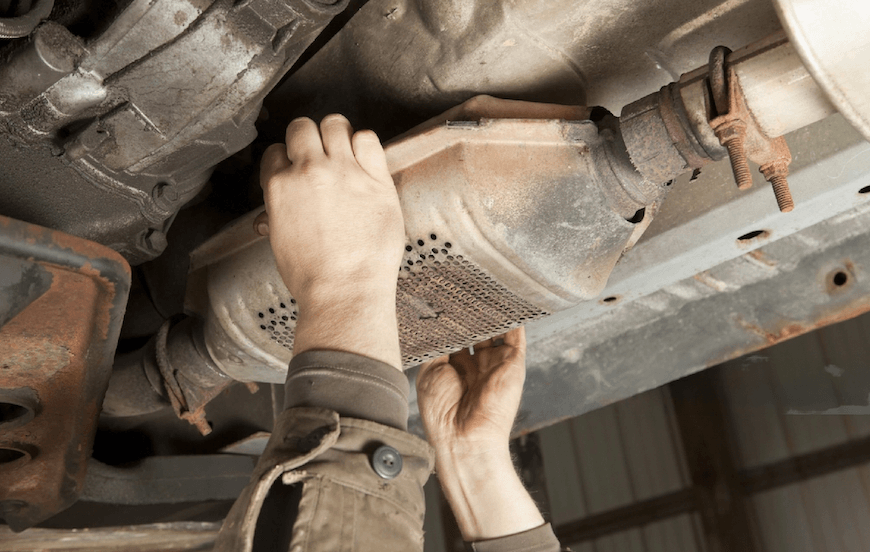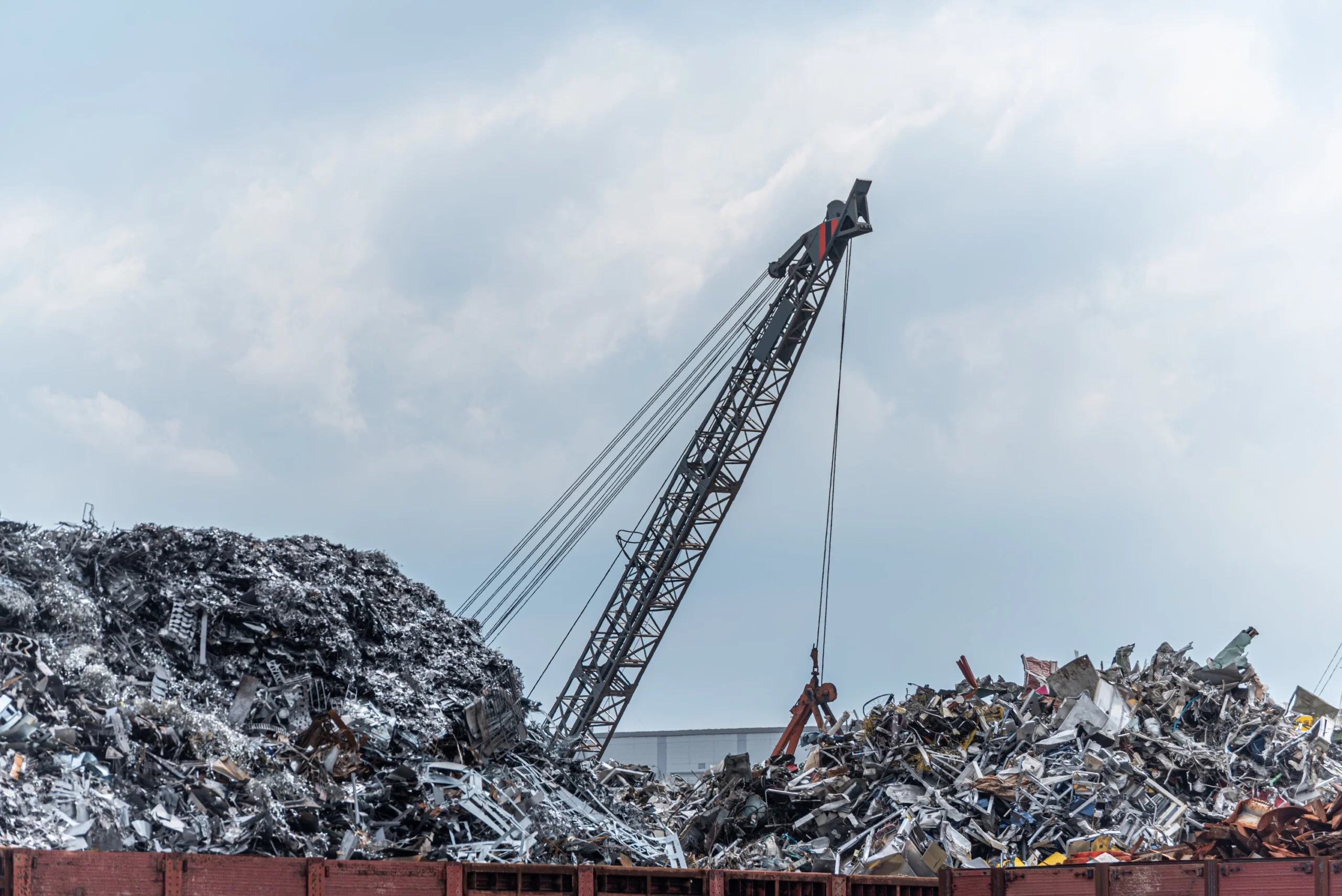Understanding the Hidden Value in Your Vehicle’s Exhaust System
Your vehicle’s exhaust system contains a goldmine that most drivers never realize exists. Catalytic converter recycling represents one of the most lucrative yet misunderstood opportunities in automotive waste management. Unfortunately, widespread myths prevent countless vehicle owners from capitalizing on this valuable resource.
Modern vehicles rely on sophisticated emission control systems to meet increasingly stringent environmental standards. At the heart of these systems lies the catalytic converter, a device that transforms harmful pollutants into less toxic substances through advanced chemical processes.
Quick Reference: Myths vs. Reality
| Common Myth | The Truth | Impact |
|---|---|---|
| Catalytic converters contain no valuable materials | Contains platinum, palladium, and rhodium worth hundreds to thousands of dollars | Missing out on $50-$500+ per converter |
| Recycling catalytic converters is illegal | Completely legal when done through licensed facilities | Avoiding legitimate profitable opportunities |
| The recycling process is too complicated | Professional services handle all technical aspects for you | Unnecessary hesitation costs money |
| Recycling doesn’t benefit the environment | Reduces mining emissions by 95% and prevents 2,000 lbs of CO2 per converter | Supporting harmful mining instead of sustainability |
| There’s no economic incentive to recycle | Rhodium prices increased 300%+ in recent years | Throwing away valuable assets |
| Catalytic converter prices are fixed | Prices fluctuate based on metal markets and converter specifications | Accepting below-market offers |
The Science Behind Catalytic Converter Value
Why These Automotive Components Command Premium Prices
The U.S. Environmental Protection Agency mandates that all vehicles manufactured after 1975 must include emission control systems. These regulations have created a massive market for the precious metals found within catalytic converters.
Myth 1: Catalytic Converters Contain No Valuable Materials
This misconception costs vehicle owners thousands of dollars annually. Research from the International Platinum Group Metals Association reveals that modern catalytic converters contain significant quantities of:
- Platinum: Essential for oxidizing carbon monoxide and hydrocarbons
- Palladium: Critical for reducing nitrogen oxides
- Rhodium: The most expensive metal, used for nitric oxide reduction
Mining companies extract these metals at enormous environmental costs. Johnson Matthey, a leading precious metals processor, reports that recycling one catalytic converter can recover metals equivalent to processing several tons of ore.
Myth 2: Recycling Catalytic Converters Violates Legal Regulations
Environmental legislation across most jurisdictions actually encourages catalytic converter recycling. The Resource Conservation and Recovery Act in the United States specifically promotes recycling initiatives that reduce mining pressure on finite resources.
South African environmental regulations align with international standards, making legitimate recycling operations completely legal. Proper documentation and adherence to environmental protocols ensure compliance with all applicable laws.
The Economic Reality of Catalytic Converter Markets
Understanding Price Fluctuations and Market Dynamics
Myth 3: The Recycling Process Is Too Complex for Average Consumers
While precious metal extraction requires specialized equipment and expertise, the process for consumers remains remarkably straightforward. Professional recycling facilities handle all technical aspects, from initial assessment to final metal recovery.
Reputable catalytic converter buyers near me provide comprehensive services that include:
- Professional evaluation and testing
- Transparent pricing based on current market rates
- Proper documentation for legal compliance
- Environmentally responsible processing
Myth 4: Environmental Benefits Don’t Justify Recycling Efforts
Scientific evidence overwhelmingly supports the environmental advantages of catalytic converter recycling. The World Health Organization emphasizes that recycling precious metals produces 95% fewer emissions compared to primary mining operations.
Studies published in Environmental Science & Technology demonstrate that recycling one catalytic converter prevents approximately 2,000 pounds of CO2 emissions that would otherwise result from mining equivalent quantities of fresh metals.
Maximizing Your Catalytic Converter’s Financial Return
Factors That Influence Market Pricing
Myth 5: No Economic Incentive Exists for Recycling
Current market conditions make catalytic converter recycling increasingly profitable. The London Metal Exchange reports that rhodium prices have increased by over 300% in recent years, while platinum and palladium maintain strong market positions.
Several factors determine the catalytic converter price:
- Vehicle make and model specifications
- Converter age and condition
- Precious metal content variations
- Current commodity market rates
- Regional demand fluctuations
Myth 6: Catalytic Converter Prices Remain Fixed
Market dynamics significantly influence catalytic converter scrap price fluctuations. Unlike fixed-price commodities, precious metal markets respond to various economic factors:
- Industrial demand from technology sectors
- Automotive production volumes
- Geopolitical events affecting mining regions
- Currency exchange rate variations
- Environmental policy changes
The Chicago Mercantile Exchange tracks precious metal futures, providing real-time pricing data that affects catalytic converter scrap price calculations.
Environmental Impact and Sustainability Benefits
How Recycling Supports Global Conservation Efforts
Traditional mining operations devastate ecosystems and consume enormous quantities of water and energy. The United Nations Environment Programme identifies precious metal recycling as a critical component of sustainable resource management.
Catalytic converter recycling creates a closed-loop system that:
- Reduces pressure on primary mining operations
- Minimizes habitat destruction in mining regions
- Decreases water consumption by up to 90%
- Eliminates toxic waste associated with ore processing
- Supports circular economy principles
Professional Services and Quality Assurance
Choosing Reliable Recycling Partners
Finding trustworthy catalytic converter buyers near me requires careful evaluation of service providers. Professional recycling facilities maintain certifications from environmental agencies and precious metal associations.
Quality indicators include:
- Transparent pricing methodologies
- Advanced testing equipment for accurate assessment
- Proper environmental permits and certifications
- Comprehensive insurance coverage
- Established market reputation
Conclusion: Making Informed Decisions About Catalytic Converter Recycling
Understanding the facts about catalytic converter recycling empowers vehicle owners to make profitable and environmentally responsible decisions. Scientific evidence consistently demonstrates both the economic value and environmental benefits of recycling these automotive components.
Market data indicates that catalytic converter price trends will continue supporting profitable recycling opportunities. Meanwhile, environmental regulations increasingly favor recycling initiatives that reduce mining pressure on finite resources.
Vehicle owners who ignore these opportunities essentially discard valuable assets while missing chances to support sustainable practices. Professional recycling services eliminate complexity barriers and ensure maximum returns on catalytic converter investments.
Don’t let misconceptions prevent you from capitalizing on this valuable resource. Research reputable catalytic converter buyers near me and discover how much your old automotive components are actually worth in today’s market.

Based on our 15+ years of experience in the catalytic converter recycling industry, we’ve compiled the most common questions our clients ask. These are the real concerns we address daily at our facility. Here are the questions below:
FAQ
How much is my catalytic converter worth?
This is the number one question we hear every day. The catalytic converter price depends on your vehicle’s make, model, and year. From our experience, Toyota Prius converters typically range from $300-$1,500, while luxury vehicles like BMW or Mercedes can exceed $2,000 due to higher precious metal content. We always tell our clients that we use real-time market data to provide accurate valuations.
How long does the recycling process take?
We often get asked this by busy customers who want to plan their visit. Professional catalytic converter buyers near me typically complete evaluations within 15-30 minutes. Payment is usually processed immediately after assessment. We pride ourselves on efficient service – most of our customers are surprised how quick and straightforward the process is.
Do I need special documentation to recycle my catalytic converter?
We always explain to our customers that yes, legitimate facilities require proof of ownership, vehicle registration, and valid ID to comply with anti-theft regulations. We’ve seen too many people disappointed when they arrive unprepared, so we always recommend calling ahead to confirm what documentation you’ll need.
Can I recycle a damaged catalytic converter?
We get this question almost daily, and we always tell customers that yes, even damaged converters retain value through catalytic converter recycling. Physical damage doesn’t affect precious metal content, though it may impact final pricing. We’ve processed thousands of damaged converters over the years, and clients are often pleasantly surprised by the value we can still extract.



